Iran Appoints New Ambassador To United Nations Headquarters
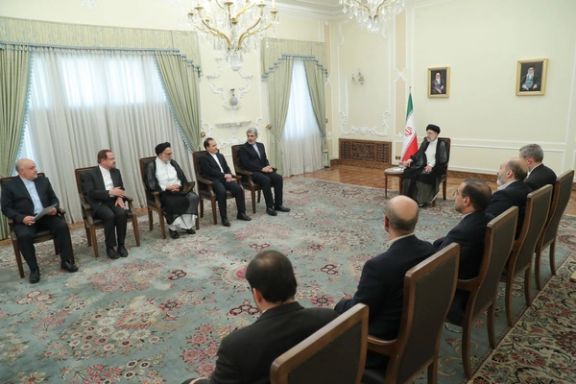
The Islamic Republic appointed Sunday Saeed Iravani, a former deputy of the country’s top security official Ali Shamkhani, as Iran’s new ambassador to the United Nations.

The Islamic Republic appointed Sunday Saeed Iravani, a former deputy of the country’s top security official Ali Shamkhani, as Iran’s new ambassador to the United Nations.
Iravani, who will replace Majid Takht-Ravanchi, served as a deputy of Shamkhani, the secretary of Iran's Supreme National Security Council (SNSC), for nine years. Majid Takht-Ravanchi was among the last officials appointed by former foreign minister Mohammad Javad Zarif, who led the Iranian negotiations with P5+1 countries which produced the 2015 nuclear deal – or the Joint Comprehensive Plan of Action.
Iravani also served as Iran’s chargé d'affaires in Iraq and secretary of Iran’s Strategic Council on Foreign Relations. He has career overlaps with current lead nuclear negotiator Ali Bagheri-Kani – as both served as SNSC deputies. He is the first Iranian ambassador to the UN with extensive SNSC experience. Iravani's diplomatic assignments -- spearheading the Saudi-Iranian dialogue in Baghdad and his experience as chargé d'affaires -- have been more regionally focused than his predecessors to date.
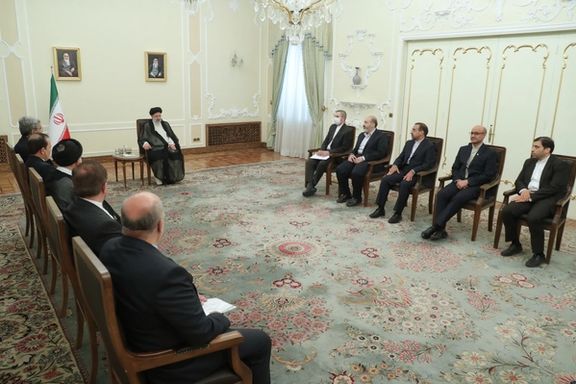
President Ebrahim Raisi also appointed new ambassadors to six countries – Georgia, India, Lebanon, Czech Republic, Poland, and Sierra Leone -- on Sunday, practically cleansing the diplomatic roster of appointees from the administration of former president Hassan Rouhani. A cleric, Khalil Sadati Amiri, was named as Iran's ambassador to Sierra Leone.
Moreover, Raisi appointed Ali Bahraini as Tehran’s permanent representative to the UN Office and other international organizations in Geneva.
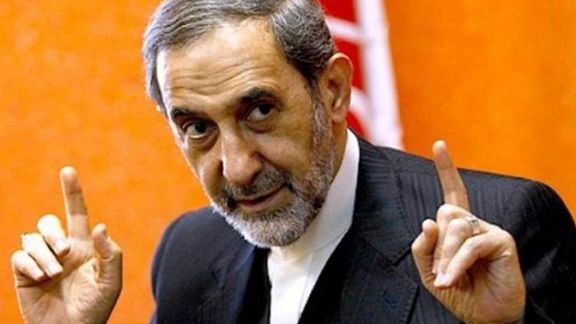
Although Iran had declared a pro-East policy in 2018, its reliance, particularly on Russia became more evident during a visit by Vladimir Putin on July 20.
Following the visit, which Washington said "proves Moscow's isolation," and some Iranian analysts characterized as an indication of Iran's isolation, reformist daily Arman Emrooz in Tehran summarized both sides' arguments in a Saturday, July 23 report that called Iran's move an unwelcome development.
Nonetheless, Supreme Leader Ali Khamenei’s supporters have exhibited endless fascination with Russia and Putin's charm offensive during his latest visit.
The Supreme Leader's senior international affairs adviser Ali Akbar Velayati, who was dozing off while Khamenei and Putin were talking through interpreters, has said: "What do reason and wisdom tell us? Should we go toward the West that has always been our enemy? Or should we go toward the East that has always helped us as much as it could?"
Velayati claimed elsewhere: "Putin believes in spirituality. Previous Kremlin leaders were Godless, but now from Putin to lower officials are either Christian or Muslim."
As if this was not enough, Assembly of Expert member Ahmad Hossini Khorasani said: "Putin's modest gestures in front of Khamenei was like a pupil's sitting in front of his teacher, and that is an honor for Islamic Iran."
International relations expert Ali Bigdeli, however, told Arman Emrooz that that Iran's reliance on the East is a strategic mistake and certainly against Iran's national interests. However, he noted that anti-Americanism has always been part of Tehran's policy since the 1979 revolution, but the government of President Ebrahim Raisi has escalated the anti-US policy.
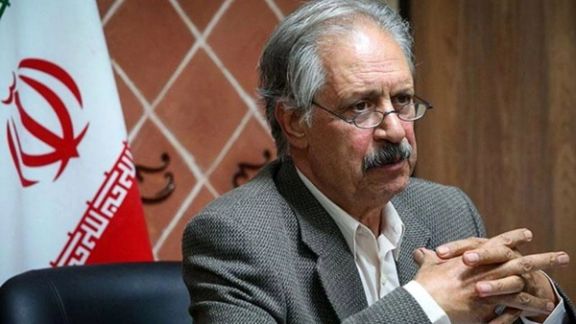
Further evidence of Bigdeli’s criticism emerged Sunday when two hardliner media outlets called for “pre-emptive” defense against the West and in support of Russia in the Ukraine war.
Referring to Russia's track record of broken promises and hypocrisy in its relations with Iran before and after the 1917 Russian revolution, Bigdeli said that Iran should have taken a lesson from Russia's invasion of Ukraine.
Meanwhile, Bigdeli warned that Russia is not capable of meeting Iran's economic needs and noted that Moscow has already failed to fulfil its commitments in nuclear, air defense projects and other projects. Bigdlei said that the latest visit by Putin simply showed that he was isolated in the world following the invasion of Ukraine and was pretending that he has found a major ally in Tehran.
He warned that Iran should not land in Russia's lap as a result of its enmity with the West. He noted that Iran currently needs $200 billion to reconstruct its oil industry but Russia and even China are incapable of providing funding for that project.
International relations expert Hassan Hanizadeh told the daily that "Iran's ‘Looking East’ policy was a choice between bad and worse." However, he justified the move as "an outcome of broken promises on the part of the United States" and said that "Iran started to seriously align its policy with those of Moscow only after former US President Donald Trump pulled the United States out of the nuclear deal with Iran in 2018."
"As the Vienna talks ended in a deadlock, the current government of Iran is now keener to follow the Looking East policy as US sanctions badly affect the country's economy, and the West's broken promises have pushed Iran to get closer to Russia and China," Hanizadeh said.
Ultraconservative analyst Foad Izadi on the other hand argued that getting close to Russia can serve Iran's major national interests. He said pro-Western analysts describe the current situation as Iran's reliance on Russia and China, but he claimed Iran is simply maintaining relations with them and is not building reliance.
However, Izadi warned that Iran should not get itself entangled in dichotomies such as choosing between reviving the JCPOA or relying on Russia.
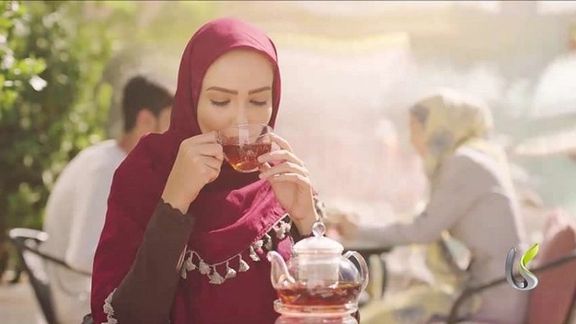
The Islamic Republic has imposed a ban on any use of female images or actors in all types of Iranian commercials and advertisements, a viral photo of the order shows.
The Ministry of Culture and Islamic Guidance announced in a letter to Iran's art and cinema schools that according to the so-called "hijab and chastity rules”, the presence of women in advertisements is prohibited from now on.
According to the letter the ban is in accordance with the rulings by the Supreme Council of the Cultural Revolution, and based on the country’s laws and regulations of commercial advertising, which forbids any "instrumental use" of women, men and children.
The ban has actually always been in place but the interpretation of "instrumental use" varies according to political and religious inclinations of particular presidential administrations.
The recent announcement of the ban comes following a controversial video of an ice-cream ad, which used close-up shots of an Iranian woman biting the chocolate-coated dessert.
The body responsible for “enjoining right and forbidding evil” in the Islamic Republic recently filed a lawsuit against the ice-cream manufacturer Domino over two controversial commercials, which it said were “against public decency” and “insult women’s values.”
The whole controversy is taking place on the backdrop of a heated debate over Iran’s enforcement of Islamic dress code or hijab in public, while many Iranian women, who wear the hijab by choice, have joined new social media campaigns this week against street patrols to force women to follow strict laws.
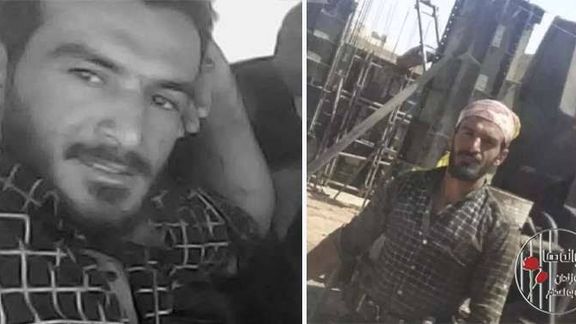
At least 45 people were executed in Iran during the previous month, and a political prisoner also received a death sentence.
According to a report by the United States-based Human Rights Activists' News Agency (HRANA) on Saturday, the executions were carried out in several prisons across Iran, including Gohardasht Prison – also known as Rajai-Shahr in Karaj, Borujerd, Birjand, Yazd, and Esfahan.
In Rajai-Shahr prison, at least 18 prisoners were executed, 10 in one day before another eight a week earlier.
The report added that a political prisoner in Orumiyeh (Urmia) prison, identified as Shaker Behrouz, was sentenced to death by Branch 1 of the city’s Revolutionary Court and several other prisoners, including a woman, were also sentenced to death on charges of murder.
In addition to the 45, Iran on Saturday carried out its first public execution in over two years in an eye-for-eye move, called ‘qisas’ according to Quranic principles. Iman Sabzikar, who had been convicted over the murder of a police officer in February 2022 in the southern city of Shiraz, was hanged in the early morning at the scene of the crime.
On June 16, UN Secretary General António Guterres released a report on the situation of human rights in Iran, decrying “the high number of death penalty sentences and executions” and “reports of death in prison due to denial of adequate and timely medical care.”
The UN chief said that the number of executions in Iran increased from at least 260 cases in 2020 to 310 individuals in 2021, and the number continued to rise into 2022.

If NATO wins in Ukraine, Iran would be its next target, the hardline Kayhan wrote Sunday, reinforcing Tehran’s support for Russia and calling for "pre-emptive defense."
Kayhan’s strong endorsement of Ali Khamenei’s support for Putin during their meeting in Tehran on July 20, was coupled with an editorial in the Revolutionary Guard Javan newspaper Sunday. Javan spoke of “pre-emptive legitimate defense”, without naming Ukraine, but in the context of defeating the West.
Javan argued that when Muslims are endangered it is legitimate to strike pre-emptively and side even with a “despotic ruler”, although it clarified that Putin is not such a leader.
The Kayhan and Javan editorials signal an attempt to justify Iran siding with Russia in the Ukraine war, by offering military assistance, by raising the far-fetched “pre-emptive legitimate defense” argument when neither Russia nor Ukraine have borders with Iran.
The Kayhan editorial was written by its ultra-hardliner editor Hossein Shariatmadari, who enjoys the title of Khemeni’s representative at the flagship conservative newspaper and is seen as reflecting the views of the Supreme Leader.
Shariatmadari described Khamenei’s praise for Putin’s “initiative” to attack Ukraine as “a serious warning to America and its allies” who “are playing with the lion’s tail.” He also wrote that “Iran is one of the next main targets” of NATO, if the Western alliance wins in Ukraine, which would justify a preemptive reaction.

Khamenei also told Putin in Tehran that if the Russian ruler had not taken the initiative, NATO was preparing to start a war in Ukraine in any case.
When the Russian invasion of Ukraine started in February, Iran tried to exhibit neutrality, calling for an end to hostilities, but blaming the West for triggering the war by expanding NATO.
At the same time the 11-month-long negotiations in Vienna to revive the 2015 nuclear deal, JCPOA, came to a halt less than two weeks after the invasion and Tehran has since refused to accept an offer the West had made in December, insisting on more demands that Washington considers “extraneous” to the nuclear issue.
In mid-July the United States warned that Russia was preparing to acquire military drones from Iran to use in the war. A few days later Putin traveled to Tehran, where Khamenei clearly sided with the Kremlin on the Ukraine issue.
Shariatmadari insisted that the Islamic Republic “considers Russia’s confrontation with America and NATO in Ukraine as part of its own security and logically and naturally will support it.”
Javan argued that Iran “is pursuing legitimate pre-emptive defense” and will spare no efforts in neutralizing “the enemy’s evil plans” and weaken Western “hegemony and the establishment of a new world order.”
The invasion of Ukraine and Russia’s confrontation with the West fits perfectly with Khamenei’s anti-Western ideology that has determined Iran’s foreign policy for more than three decades. The United States is often labeled as “World arrogance” by Khamenei and his supporters who have rejoiced at any sign of Chinese-US or Russian-US tensions.
Khamenei in his speeches has constantly called for a tilt toward the East, as Iran’s best strategic path, praising relations with Moscow and Beijing, although both sided with the West in early 2010s to limit Tehran’s nuclear program.
The pro-Russia foreign policy has been criticized by former politicians and pundits in Tehran, who often cite the Islamic Republic’s original motto of “Neither East nor West.”
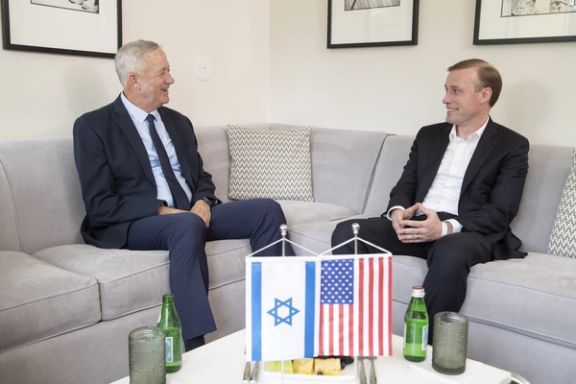
Israeli Defense Minister Benny Gantz met with US National Security Advisor Jake Sullivan to discuss deepening bilateral defense cooperation in face of the Iranian threat.
The two held a meeting on the sidelines of the Aspen Security Forum on Friday, where they also discussed President Joe Biden’s visit to Israel and Saudi Arabia and its effects on ways to strengthen regional cooperation.
“We discussed the growing threat posed by Iran to the world, the region and to the State of Israel via its nuclear program and growing aggression via proxies, maritime activities, cyberattacks and more, and ways to create a united front against the region’s biggest destabilizer,” Gantz tweeted.
Gantz also held separate meetings with former US secretary of state Condoleezza Rice, former secretary of defense Mark Esper, and Iowa’s Republican Senator Joni Ernst.
In an interview during the Aspen forum, Gantz noted that war with Iran was the least desired option, saying, “Should we jump to a war at the first opportunity we have? No. Should we be able to conduct military operations to prevent it [a nuclear Iran] if needed, the answer is ‘yes.’ Are we building the ability [for war]? Yes. Should we use it as a last case? Yes – and I hope that we will get US support.”
During Biden’s trip, the Jerusalem US-Israel Strategic Partnership Joint Declaration was issued in which Washington reaffirmed its commitment “never to allow Iran to acquire a nuclear weapon” and promised that “Israel had a right to defend itself by itself.”